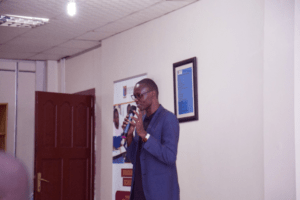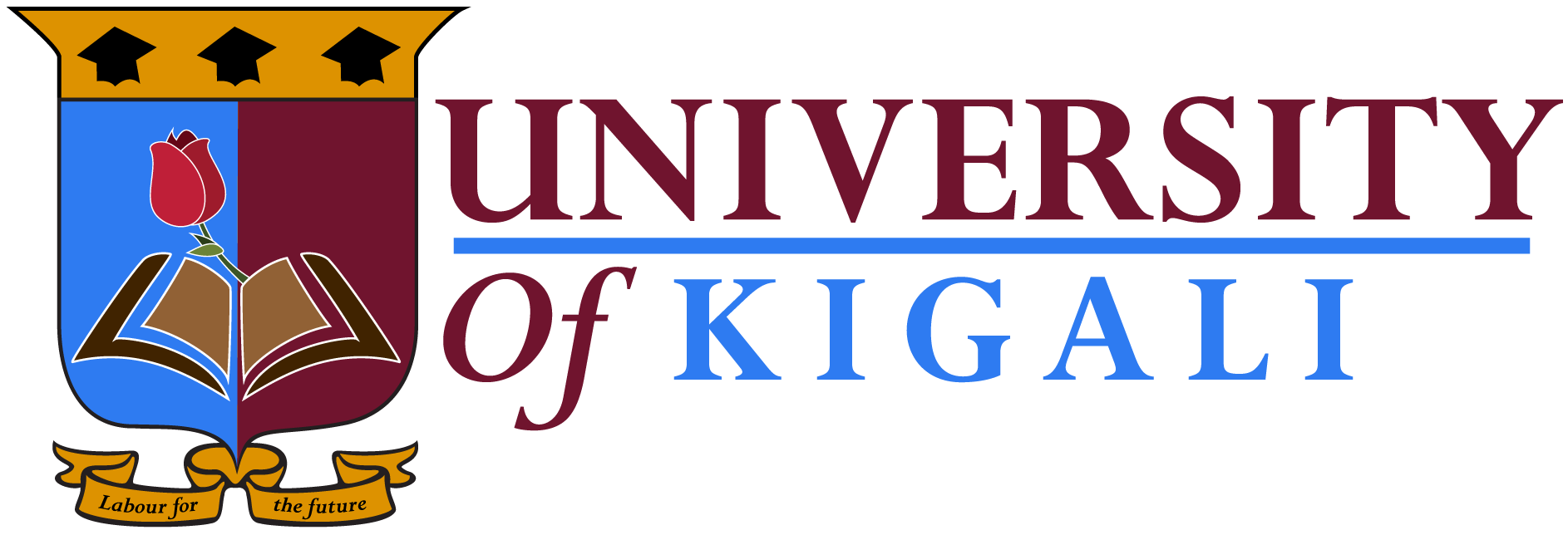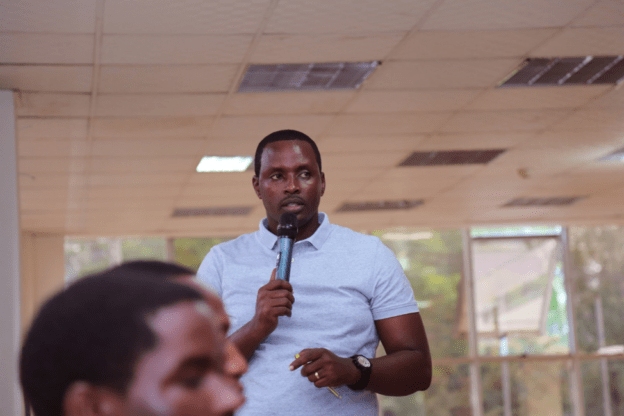The University of Kigali senior management provided life-changing and career-changing Post Graduate insights in a research colloquium held on May 6, 2023 at University of Kigali campus. The senior management included the Vice-Chancellor, Prof. David Wangombe and the Deputy Vice Chancellor-Academic, Prof. Felix Maringe. The Workshop participants included graduate students currently undertaking research in the areas of Economics, Finance/Accounting, Information Technology, Project Management, Human Resource Management, Procurement & Supply Chain Management, Education, Public Policy & Management and Executive MBA. The Graduate School faculty were also in attendance.
In his opening remarks, The Vice-Chancellor pointed out the need for research in academia and industry, “research should be used to solve problems facing the society” he noted. The Vice-Chancellor provided life-changing post graduate research insights such as guidelines on how research should be conducted, managing research time by ‘making it a habit’, balancing between the different life needs and research. He implored the masters students to join research clubs or groups that will facilitate sharing of ideas. “Research clubs will act as support groups that enable students to encourage and lift each other by reading each other’s work,” the Vice Chancellor noted.
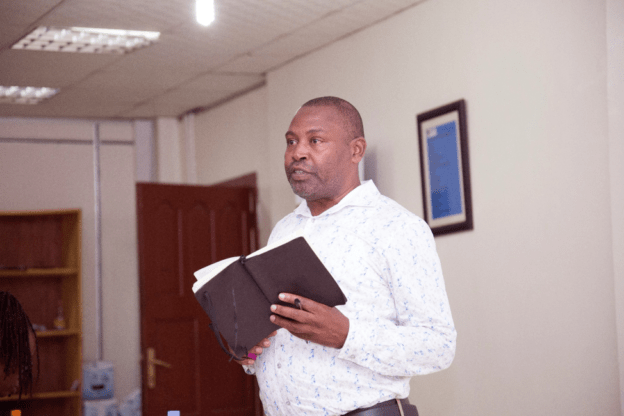
The Vice-Chancellor added that literature review is one of the critical aspects of research. He advised students to conduct a review of literature by reading available literature such as articles. “Starting with the known will help identify existing theories, methods, challenges, findings, conclusions and limitations” he emphasized. Using a literature review map, he also pointed out that reviewing literature should be conducted with a purpose to avoid plagiarism.
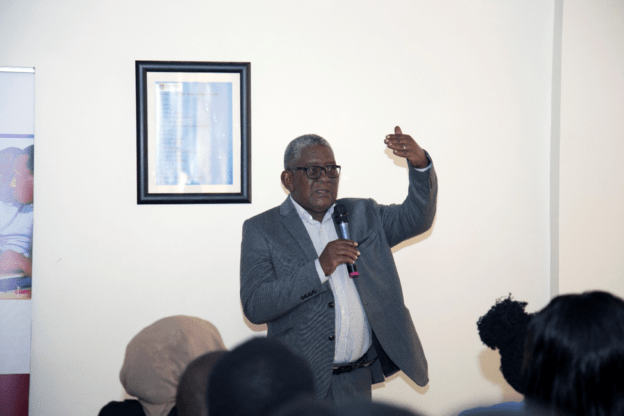
On his part, The Deputy Vice-Chancellor – Academic focused on literature review for postgraduate studies. His presentation responded to the following questions; what is a literature review? Why is it important as an academic endeavor? What are the types of literature review? What characterizes a good literature review? What are the key elements/processes in conducting a literature review? What are some of the conundrums students face in writing a literature review?
The Deputy Vice chancellor-Academic revealed that literature review is important since it helps in clarifying, critiquing, directing and justifying the new research effort and mapping the empirical terrain. He also expounded the different types of literature review including Narrative reports of literature, Scoping reviews, Systematic reviews, Annotated bibliographies, Meta-analysis reviews and Meta synthesis. He particularly laid emphasis on the structure of literature review that includes a conceptual review, a theoretical review and an empirical review.
The workshop was opened by Dr. Sanja Michael, The Deputy Vice-Chancellor, Institutional Development, Research and Innovation. Dr. Sanja Michael noted that masters students should take advantage of such colloquium to improve their research skills. In his closing remarks, Dr. Kwena Ronald, Dean of the Graduate School and organizer of the colloquium highlighted the fact that the Graduate School is shifting focus to research. “We want to give more time to research activities.”
